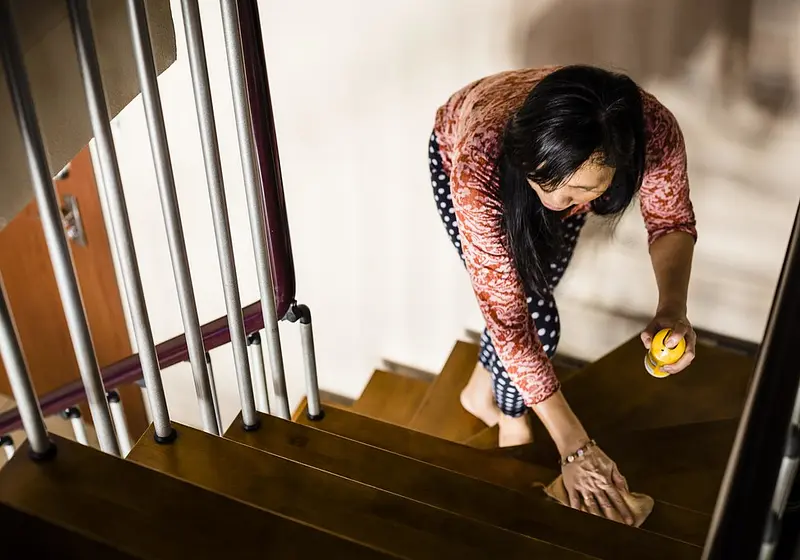“In the twenty-first century, domestic workers constitute one of the globalized economy’s major employment categories… The overwhelming majority— 83 percent— are women… Violence, debt, and deception have been woven into domestic workers’ lives.”
- Cynthia Enloe, "Bananas, Beaches and Bases"
A domestic worker (DW), by definition, is someone who cleans other people’s homes, takes care of their children, and cooks their food. They are integral to the daily functioning of countless households around the globe, yet the conditions they are forced to work in have become increasingly vulnerable. The Human Rights Watch reports that DWs work “14 to 18 hours a day, seven days a week, for wages far below the minimum wage. They may be locked within their workplace and subject to physical and sexual violence.”
As teens, we have grown up around movements such as #MeToo and Black Lives Matter, domestic workers are another vulnerable and marginalized group that need our support. As an American-Pakistani, I could not help but express concern about what it is truly like to be a domestic worker in both nations; I therefore set out to investigate.
Let us slide into your dms 🥰
Get notified of top trending articles like this one every week! (we won't spam you)Domestic Workers in Pakistan
DWs are much more commonplace in Pakistan than in other nations around the globe, as both middle and upper class households employ them. However, this does not prevent these workers from facing multiple difficulties, one of the most prevalent of which is physical violence. Even the more educated employers are perfectly capable of stigmatization and abuse.
To make matters even worse, DWs— many of whom are poor rural immigrants who have moved to the city for better opportunities— do not get paid well. As Ghazal Zulfiqar, a Pakistani academic who researches on the domestic worker issue in Pakistan, states, “I have learned about DWs who are not even paid a single rupee and are told that they will be given a dowry when they get married as compensation for all the years of service they have given their employers. These are rich employers and can easily afford a decent DW wage.”
In Pakistan, only the province of Punjab has passed a Domestic Worker Act, which regulates DWs' occupational conditions by ensuring stable employment, insurance, and registration within the Punjab Employees Social Security Institution (PESSI). It was legislated to reorganize DWs as waged workers, not as domestic helpers, maids, or servants, as they are commonly referred to in Pakistan and elsewhere.
The Act was the result of ongoing activism in Pakistan by nonprofits, human rights groups, and worker unions in the city of Lahore, sparked by coverage of the torture and abuse DWs are subjected to. They also highlighted that such people are chronically underpaid and have to put up with unregulated working conditions. As Arooma Shahzad, the General Secretary of the Lahore Domestic Worker Union, says, “The union advantage is very clear.
All the activism that was done led to the 2019 Act, and also the registration of DWs happened because of the union. The Lahore DW union is the first union in the country. A union is a body that exists for the workers and by the workers.Our union is an exceptional union, where the DW worker capacity has increased to such an extent that now they fight for their own rights, even though in the beginning they had no idea about their rights as workers.”
Unfortunately, even after three years, the Act hasn’t been implemented. There is elite pressure against its implementation because, if the DW is recognized as a worker in the same vein as a factory worker or any other kind of formal worker, the home becomes a workplace. If the home becomes a workplace, then employers will have to deal with labor inspections and penalties, which they don’t currently have to bother with.
They will also need to have written, formal contracts with their DWs. Finally, they will need to pay the minimum wage, allow only an eight-hour workday, and not be able to hire underage workers.
Even if implemented, the Act lacks several benefits. As Bushra Khaliq, the Executive Director for Women in Struggle for Empowerment (WISE), states, “In other labour laws, the maternity leave is 12 weeks, but Domestic Workers Act 2019 offers only six weeks maternity leave.” Khaliq demands that Pakistan should ratify the International Labor Organization (ILO) Convention C-189. On June 6, 2011, the Convention 189 for Domestic Workers was launched by the ILO. It set minimum labour standards for domestic workers.
Take the Quiz: Which Indian city is the perfect holiday spot for you!?
Let's match you with an Indian city that you would love!
Domestic Workers in the United States
In the US, domestic workers are mostly women of color or migrants from the Global South. The downside of being a migrant is that it makes one even more vulnerable as a DW, since they may not have basic citizenship rights. In general, this entire workforce functions under harsh conditions and is subject to abuse.
The average DW income is very low, averaging around $13,000 a year. Even after working incredibly hard, DWs are unable to adequately provide for themselves and their families.
The New Deal of the 1930s secured rights for workers across various categories, but it did not include everyone. The southern members of Congress refused to support the proposed programs for as long as African American farm workers and DWs were included, and therefore, these two demographics were negotiated out of it; they were even excluded from the National Labor Relations Act of 1935 and the Fair Labor Standards Act of 1938.
“Before I knew about my rights, I worked for 7 days a week, 11 hours a day, cleaning houses in San Francisco for just $2 an hour. I believe this statewide program and the partnership with trusted community-based organizations are necessary to reach and educate the hundreds of thousands of domestic workers across California who are just like me. Si Se Puede!”
- Ericka, The Women's Collective of San Francisco
The state of California recently attempted to redress these wrongs by passing the Domestic Worker Bill of Rights, which was authored by assembly members Manuel Pérez and Tom Ammiano in 2013 and became permanent state law in 2016. The Bill regulates DW working hours, overtime pay, breaks, and work compensation; in addition, a Housecleaner Right to Know Act, which makes it mandatory for DWs to be informed about the safety of the products they are required to use, was also passed.
In order to ensure its enforcement, the California Domestic Workers Coalition set out to educate DWs across the state about their rights. The program was funded by the state’s budget.
What now?
I believe that there is a lot to learn from these examples, including the need for genuine activism, strong legislation, and educating DWs about their rights. It's important that you and I join the movement by writing a letter to Congress, join the National Domestic Workers Alliance's policy campaign for DW rights, and talk to our friends and families about this issue to spread awareness about DWs working conditions and their rights.














